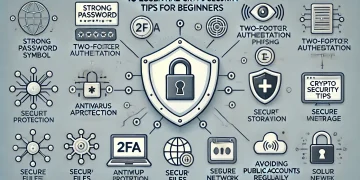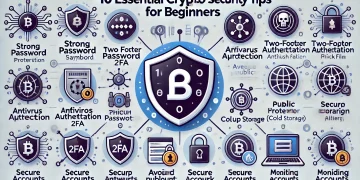Non-fungible tokens (NFTs) have taken the digital world by storm, revolutionizing how we think about ownership, art, gaming, and digital assets. With billions of dollars in sales and new applications emerging daily, the NFT market has quickly evolved into a dynamic and fast-paced ecosystem. In this guide, we’ll analyze the latest trends in the NFT market, explore emerging use cases, and highlight popular platforms driving this sector forward.
What Are NFTs and Why Are They Valuable?
NFTs are unique digital assets stored on a blockchain, usually representing ownership of something like art, music, videos, in-game items, or even virtual land. Unlike cryptocurrencies such as Bitcoin or Ethereum—which are fungible (interchangeable)—each NFT is one-of-a-kind and cannot be replaced.
- Examples:
- A digital artwork by Beeple sold for $69 million at Christie’s.
- Twitter’s founder Jack Dorsey sold his first tweet as an NFT for $2.9 million.
The value of an NFT often depends on factors such as scarcity, provenance, and community demand, with some NFTs becoming highly sought-after collectibles.
Emerging Trends in the NFT Market
The NFT space is rapidly evolving, with new trends shaping the industry. Let’s dive into some of the most notable developments that are driving the future of NFTs.
1. NFTs and Gaming: Play-to-Earn Models
The integration of NFTs with gaming is transforming the traditional gaming model. Play-to-earn (P2E) games reward players with NFT assets or cryptocurrencies that can be traded or sold for real-world value.
- Popular P2E Platforms:
- Axie Infinity: Players collect and breed creatures called Axies, which are NFTs.
- The Sandbox: A virtual world where users buy NFT-based virtual land.
The ability to own in-game assets and transfer them between platforms creates exciting new opportunities for players and developers alike.
2. NFT Memberships and Utility NFTs
NFTs are no longer limited to digital art or collectibles. Projects are increasingly offering utility NFTs that provide holders with exclusive benefits, such as access to events, services, or communities.
- Examples of Utility NFTs:
- BAYC (Bored Ape Yacht Club): Holding a Bored Ape NFT grants access to exclusive meetups and parties.
- VeeFriends: Created by Gary Vaynerchuk, these NFTs offer access to his conferences and mentorship programs.
This shift toward utility-driven NFTs reflects the growing demand for more tangible value beyond just digital ownership.
3. NFT Fashion and Virtual Wearables
With the rise of the metaverse, virtual fashion and digital wearables are gaining popularity. Brands are creating NFT-based clothing and accessories for users to wear in virtual worlds or display on social media profiles.
- Examples:
- RTFKT Studios: Acquired by Nike, RTFKT creates virtual sneakers and wearables.
- Dolce & Gabbana: Released an NFT fashion collection with both digital and physical components.
NFT wearables allow users to express themselves in virtual environments, reflecting the growing intersection between fashion and technology.
4. Fractional NFTs and Shared Ownership
Fractionalization is an emerging trend that makes high-value NFTs accessible to more people by dividing ownership into fractions or shares. This allows multiple investors to collectively own a valuable NFT.
- Example: Fractional.art enables users to buy fractions of high-value NFTs like CryptoPunks.
- Impact: Fractional NFTs lower the barrier to entry, making it possible for smaller investors to participate in high-end NFT markets.
This trend could democratize access to expensive NFTs and increase liquidity in the market.
5. NFT Ticketing and Event Access
NFTs are being used to revolutionize the ticketing industry, providing event organizers with a secure and transparent way to sell tickets. NFT-based tickets also come with secondary benefits, such as collectible memorabilia or future discounts.
- Examples:
- Coachella: Offered lifetime festival passes as NFTs.
- NBA Top Shot: In addition to moments, NFTs provide fan engagement opportunities at events.
Using NFTs for ticketing reduces fraud and enables organizers to offer unique experiences tied to ownership.
6. NFTs in Music and Entertainment
Musicians and artists are using NFTs to connect directly with their fans by selling exclusive content, albums, or concert experiences. NFTs also give artists more control over their revenue streams by eliminating intermediaries.
- Examples:
- Kings of Leon: Released an album as an NFT with special perks.
- Snoop Dogg: Converted some of his albums into NFTs, offering fans exclusive content.
This trend is transforming the music industry by empowering artists and offering fans new ways to engage with their favorite creators.
Popular NFT Platforms and Marketplaces
The success of NFTs has given rise to several dedicated platforms and marketplaces where users can create, buy, sell, and trade NFTs. Let’s explore some of the leading NFT platforms.
1. OpenSea
OpenSea is the largest and most popular NFT marketplace, offering a wide range of digital assets, from art to virtual land and collectibles.
- Blockchain: Ethereum and Polygon.
- Features: Minting tools for creators, cross-chain compatibility, and diverse NFT categories.
- Use Cases: Crypto art, gaming assets, and collectibles like Bored Apes and CryptoPunks.
OpenSea’s user-friendly interface and large community make it the go-to platform for many NFT enthusiasts.
2. Rarible
Rarible is a decentralized marketplace that allows users to mint and sell NFTs without coding knowledge. It offers a community-driven governance model through its native token, RARI.
- Blockchain: Ethereum.
- Features: Minting tools, multi-token support, and community voting on platform changes.
- Use Cases: Art, photography, and audio NFTs.
Rarible is ideal for artists and creators looking to engage directly with their audience.
3. SuperRare
SuperRare focuses on high-end digital art and offers a curated experience, showcasing works from top digital artists. It has become known for selling exclusive, limited-edition pieces.
- Blockchain: Ethereum.
- Features: Artist-focused marketplace with a strong curation model.
- Use Cases: Crypto art and limited-edition digital works.
SuperRare is ideal for art collectors looking for exclusive, high-quality pieces.
4. NBA Top Shot
NBA Top Shot offers officially licensed NFT moments from NBA games, creating a new way for sports fans to collect highlights and memorabilia. It has become one of the most successful sports-related NFT projects.
- Blockchain: Flow.
- Features: Pack drops, trading marketplace, and fan engagement tools.
- Use Cases: Sports moments, collectibles, and fan tokens.
NBA Top Shot is a prime example of how NFTs can transform the sports industry.
5. Foundation
Foundation is a community-driven platform for artists and collectors. It focuses on empowering creators and offers a sleek, auction-style marketplace for digital art.
- Blockchain: Ethereum.
- Features: Auctions, artist collaborations, and community engagement.
- Use Cases: Digital art, photography, and visual media.
Foundation offers a clean, professional marketplace for both emerging and established artists.
Future Outlook for the NFT Market
The NFT market is poised for continued growth as new use cases emerge and mainstream adoption increases. Here are a few key trends to watch:
- Integration with the Metaverse: Virtual worlds will play a significant role in expanding the NFT market, with more brands creating NFT-based virtual assets.
- Mainstream Adoption: More artists, athletes, and celebrities are joining the NFT space, driving broader awareness and participation.
- Regulatory Developments: Governments and regulators are paying closer attention to NFTs, which could impact the market’s future growth.
- Sustainability Concerns: Platforms are exploring eco-friendly blockchains to address environmental concerns around NFT minting.
The evolving NFT landscape promises exciting opportunities for creators, collectors, and investors alike.
FAQs about NFT Market Trends and Platforms
1. Are NFTs just a bubble, or do they have long-term value?
While some speculative activity exists, NFTs are unlocking new forms of ownership and engagement, suggesting that their long-term potential extends beyond the current hype.
2. How can I mint my own NFT?
You can mint an NFT on platforms like OpenSea or Rarible by uploading your digital content, setting metadata, and paying a gas fee.
3. What are gas fees, and why are they so high?
Gas fees are the transaction fees required to process actions on blockchains like Ethereum. They increase during periods of high network congestion.
4. Are NFTs environmentally friendly?
Some NFT platforms use energy-intensive blockchains like Ethereum. However, solutions like Polygon and Flow offer more eco-friendly alternatives.
5. Can I sell NFTs on multiple platforms?
In most cases, NFTs are locked to the platform where they were minted. However, cross-chain compatibility solutions are emerging.
6. Are NFT investments risky?
Yes. NFT prices can be volatile, and their value depends on demand, scarcity, and market trends. Always conduct thorough research before investing.
The NFT market is transforming digital ownership and creating new opportunities for artists, gamers, and entrepreneurs. As the market matures, we’ll continue to see innovative use cases and expanded adoption across industries. Whether you’re looking to buy your first NFT or explore new platforms, staying informed about market trends will help you capitalize on the evolving landscape.






























